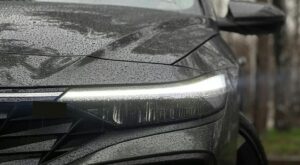You want to buy a used car, so how many kilometres are too many?
A car with a high number of kilometres on the good old odometer is generally not the best thing if you are buying a ‘new to you’ used vehicle. That said, it is not always the worst thing, so how do you tell? Apart from the general considerations when shopping for a used car, budget, make, model, type and so on. There is also the age of that model and how old is too old. Kilometres also play a big part. There are few black and white answers, so let’s look at some basic guidelines to follow.
The age of the vehicle vs its mileage – how should you work this out?
Typically, the newer vehicle with the lowest mileage you can find in your general price range and chosen type is best. Age and mileage wears on a car in different ways. Generally, the more it is driven the more its parts will wear and be closer to eventually wearing out.
Generally, a younger vehicle will have less kilometres and should logically be a better bet. More recent models would also potentially have more goodies, upgrades in safety features, trim, style and so on. Plus, the some of its parts are newer and therefore have less wear.
Newer vehicles may also still have some of the manufacturer’s warranty left on them and with that, demo models can be good for the right price. Japanese manufactured cars like Honda, Mazda, Mitsubishi, Nissan, Subaru and Suzuki are all brands worth some consideration. Something else to ponder is diesel vs petrol with 4WD’s leading the charge in that field. Bigger SUVs like the Toyota LandCruiser, Ford Everest and Mitsubishi Pajero are all very popular vehicles, especially if towing is part of your criteria.
Korean models from Hyundai and Kia are also proving to be very popular, as are Haval and the like. A dramatic uplift in quality, reliability and being feature driven, along with long warranties and good pricing have made them so. Kia’s mainstream range of models like the Sportage and Sorento SUVs are among the best in their segments and come with a (new) seven-year warranty which is transferable. Older Korean models however, should perhaps be given a miss.
As for European and North American brands, they do not fare so well when it comes to positives because of the cost of repairs and parts. So as for reputation quality, they tend to suffer as opposed to more popular Japanese and Korean models.
Fancies to tempt you.
Another factor to consider is the baubles, or bells and whistles that may be very appealing, but don’t put the tempting ‘fancies’ above the important basics like finish, quality and reputation. Simple is often the best bet for a very good reason, there is less to go wrong. These days a lot of warranty claims for vehicles relate to electrical issues being expensive and often very difficult to fix.
If you’re not sure about the model you may be interested in, go online and do some general snooping. You can look for reviews, photos, videos, thoughts and comments from owners talking about both positives and negatives of that vehicle in social media and forums. There are even online forums out there that are car specific with owners talking about or asking for advice on issues.
If a car has been well looked after, with regular servicing, does this extend its longevity?
It is generally quite true that a regularly service car will extend the vehicle’s longevity, it boosts its value and makes will more often than not make it easier to sell. Just make sure you look at the car’s logbook as evidence.
Fuel – Diesel v Petrol v Electric
A lot of larger SUV vehicles are turbo-diesels, which is an engine type that has a general reputation for being more durable than petrol engines. However, even turbo-diesel engines do require significant maintenance and can be expensive. Some diesels have a longer lifespan than some petrol engines, but it comes down to brand, the history of its service life and the vehicle in general. The choice is yours based on your needs.
You also need to consider, beyond servicing, kilometres of course. Other look-fors include has it been off-road much, condition of the body, extras like tow bars, spotlights, modifications and so on. It really comes down to what you want out of a vehicle and does it suit your needs and budget. There are also electric car considerations that need to be really investigated before leaping in. This type of fuel source relies on a battery, which does not last forever. So what happens when you need to replace it on your older electric vehicle? The one thing that seems to dominate any discussion is cost. A replacement battery for a car is a big deal and ultimately you really need to look into it if buying an older electric car. Additionally, buying off an online ad, definitely do a vehicle check to see if it has been written off on insurance and repaired. This is a very good thing to do.
In Closing.
Buying a used vehicle can lead you down an interesting path with all of the considerations you need to make before you take the plunge. But back to the original question, do you buy a vehicle with a high number of kilometres on it? There is no definitive answer from all of the information above, the best you can do is make sure you consider carefully and be confident in your decision. As the trusted professionals at Autospark, we can do a lot to look after your vehicle once you have decided. We not only offer electrical repairs, we also do mechanical services and a lot of other types of vehicle repairs too.
Rely on our experience and the advice we are always happy to offer to all our customers for over 35 years.





